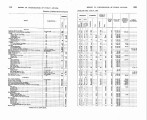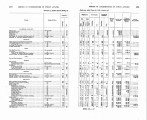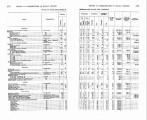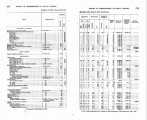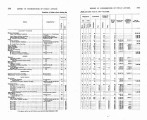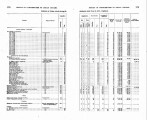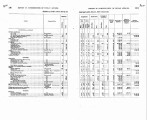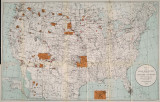| OCR Text |
Show I REPORT OF C~MISSIONER OF INDIAN AFFAIRS. 25 I criticism on the ground of inexperience in the actual work of adminis-tration. I have put into every annual report a brief outline of the con. structive legislation enacted by the Congress at its last preceding, session. This record shows that tremendous forward strides have been made in the promotion of civilization among the Indians and the conservation of their property, but a few other and very important mntters have been left untouched. One of these to which I' have already alluded is the need if better compensation for the government employees who do the worlr of the Indian establishment at hend-quarters .and in the field. The salaries of the clerlrs in the O5ce of Indian Affairs are still on the basis of twenty years ago, when Washington was fa^ less of a city and the expense of living there proportionally smaller. They are fixed by law, the legislative, execu-tive and judicial appropriation act providing for so many clerlts of class 1, so many of class 2, etc., leaving nothing to administrative discretiol~ except the choice of the persons who shall be designated to fill these positions. The intervals between classes are as wide as $200 a year, a s a rule, a schedule which will probably remain un-chdnged till the Keep commission plan, or something similar to it, is adopted as a substitute. When it is remembered what an enormous variety of subjects are handled id this office, requiring more or less expert knowledge of the land laws, the irrigation laws, the forestry law?; the values of lands and timber, cattle and sheep; the building of houses; the management of schools; the purchase of all manner of supplies, from matches to steam engines, the real economy of hiring only competent help will he appreciated, and the waste of time and energy in trying to get the best at such salaries as we are able to pay.. In no branch of the Government is it more desirable to train up a corps of new employees capable of filling well the places of the old and experienced who drop. out through superannuation, death or resignation. The same principle holds good in the field service, where we keep nearly 6,000 persons continually employed. . In the field, it is true, the department has the arrangement of the pay roll in its own hands, excep as to the agents, certain superintendents and a few others spe-cially appropriated for; but, given an appropriation of a certain size and a certain number of employees to he supported out of it, and the problem is reduced to the simple terms of an exercise in long division. As it is, no small fraction of the time of one important branch of this office is spent in studying mere inakeshiftshow an extra $5 a month needed for one place can be pared off of another. ' There mould be 110 objection to this expenditure of energy on the petty frugulities of. public housekeeping if it led to satisfactory results; but, as its net product is only h temporary palliative and newr :I permanent cure' of |













































































































































































